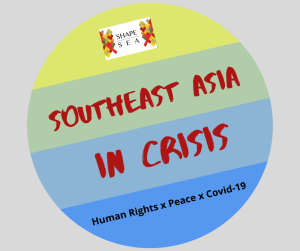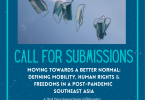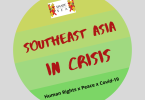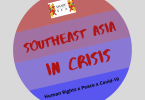Rebecca Tan4th Year Juris Doctor from the University of the Philippines College of Law, and a research assistant at the UP Law Center, Training and Convention Division
 The COVID-19 pandemic has changed numerous aspects of our lives, including the suspension of classes due the enhanced community quarantine in the Philippines. Despite this, schools are able to continue holding class via online platforms.The situation begs the question of whether or not institutions may continue classes in this manner, and if it is in the best interest of the student. This is especially relevant in the Philippines, where not everyone has stable internet, or devices that can access the internet. It has come to the point where students have to climb mountains for signal to submit requirements (GMA News, 2020) and other similar stories, while they clamor for empathy from their universities (Bagayas, 2020).The Philippine Constitution ensures the right of academic freedom (Art. XIV, Sec. 5 (2)). This consists of four essential freedoms of the university: the right of the institution to determine for itself on academic grounds (a) who may teach; (b) what may be taught; (c) how it shall be taught; and (d) who may be admitted to study (Pimentel v LEB, 2019). Regarding these, the university has autonomy, and the State generally does not interfere.Concomitant to this, is the right to education, which is protected in international law (UNDHR, Art. 26; ICESCR, Art. 13(2)) and by the Constitution ” The State shall protect and promote the right of all citizens to quality education at all levels, and shall take appropriate steps to make such education accessible to all. (Art. XIV, Sec. 1) But this basic human right does not mean unrestrained access to any institution, rather while, students have a right “to freely choose their field of study ¦ such right is subject ¦ to the established academic and disciplinary standards laid down by the academic institution (Ateneo v Capulong, 1993).From this, we see that academic freedom consists of a very broad range which Philippine laws and jurisprudence have rarely restricted, thus it would seem that the institution indeed has the freedom to implement any policy it decides.But considerations should be made because of the exigencies of the situation. The right to education should not be interrupted now, especially because of difficulties beyond the students ™ control. Universities should not forget that in the time of a pandemic, empathy and understanding should be the priority.It is not unheard of for schools to be compelled to adjust what they originally considered a valid exercise of their academic freedom, to consider the students ™ right to education, as in the case of Isabelo v Perpetual Help College of Rizal (1993). With the pandemic upon us, the words of the Supreme Court in this case, are important for universities to consider ”
The COVID-19 pandemic has changed numerous aspects of our lives, including the suspension of classes due the enhanced community quarantine in the Philippines. Despite this, schools are able to continue holding class via online platforms.The situation begs the question of whether or not institutions may continue classes in this manner, and if it is in the best interest of the student. This is especially relevant in the Philippines, where not everyone has stable internet, or devices that can access the internet. It has come to the point where students have to climb mountains for signal to submit requirements (GMA News, 2020) and other similar stories, while they clamor for empathy from their universities (Bagayas, 2020).The Philippine Constitution ensures the right of academic freedom (Art. XIV, Sec. 5 (2)). This consists of four essential freedoms of the university: the right of the institution to determine for itself on academic grounds (a) who may teach; (b) what may be taught; (c) how it shall be taught; and (d) who may be admitted to study (Pimentel v LEB, 2019). Regarding these, the university has autonomy, and the State generally does not interfere.Concomitant to this, is the right to education, which is protected in international law (UNDHR, Art. 26; ICESCR, Art. 13(2)) and by the Constitution ” The State shall protect and promote the right of all citizens to quality education at all levels, and shall take appropriate steps to make such education accessible to all. (Art. XIV, Sec. 1) But this basic human right does not mean unrestrained access to any institution, rather while, students have a right “to freely choose their field of study ¦ such right is subject ¦ to the established academic and disciplinary standards laid down by the academic institution (Ateneo v Capulong, 1993).From this, we see that academic freedom consists of a very broad range which Philippine laws and jurisprudence have rarely restricted, thus it would seem that the institution indeed has the freedom to implement any policy it decides.But considerations should be made because of the exigencies of the situation. The right to education should not be interrupted now, especially because of difficulties beyond the students ™ control. Universities should not forget that in the time of a pandemic, empathy and understanding should be the priority.It is not unheard of for schools to be compelled to adjust what they originally considered a valid exercise of their academic freedom, to consider the students ™ right to education, as in the case of Isabelo v Perpetual Help College of Rizal (1993). With the pandemic upon us, the words of the Supreme Court in this case, are important for universities to consider ”
Like any other right, however, academic freedom has never been meant to be an unabridged license. It is a privilege that assumes a correlative duty to exercise it responsibly. An equally telling precept is a long recognized mandate, so well expressed in Article 19 of the Civil Code, that every “person must, in the exercise of his rights and in the performance of his duties, act with justice, give everyone his due, and observe honesty and good faith (227 SCRA 591, p. 596).
Justice Cruz in his dissenting opinion in the case of Tan v CA (1991) also discusses the responsibility of the university:
I have reservations about the ponencia insofar as it suggests that if the parents are not satisfied with the policies of the school, they are free to enroll their children elsewhere. It is not as simple as that. The school ¦ is an enterprise affected with public interest and as such does not have full freedom in defining its policies. The school has a missionary and visionary purpose (199 SCRA 292, p. 227).
As institutions of learning, it is urged that they implement measures that are fair and just, and exercise their academic freedom in a way that will not comprise the students ™ legitimate learning experience, health, and safety. That they wield their power with discretion, remembering that the students ” having been accepted to the university prior to the pandemic ” should not be forced into a situation where they give up their right to education because of the difficulty of access to education.References:
- Student climbs mountain in search of signal to send school requirements , GMA News Network, April 29, 2020
- Bagayas, Samantha, Students urge suspension of online classes during coronavirus lockdown , Rappler.com, March 23, 2020
- Art. XIV, Sec. 5 (2), CONST.: Academic Freedom shall be enjoyed in all institutions of higher learning.
- Pimentel v LEB, G.R. Nos. 230642 & 242954 (December 3, 2019) citing Justice Frankfurter ™s concurring opinion in Sweezy v New Hampshire, 354 US 234 (1957)
- Art. 26, UNDHR: Everyone has the right to education. Education shall be free, at least in the elementary and fundamental stages. Elementary education shall be compulsory. Technical and professional education shall be made generally available and higher education shall be equally accessible to all on the basis of merit.
- Art. 13 (2), ICESCR: (c) Higher education shall be made equally accessible to all, on the basis of capacity, by every appropriate means, and in particular by the progressive introduction of free education;
- Art. XIV, Sec. 1, CONST.
- Ateneo v Capulong, G.R. No. 99327 (May 27, 1993)
- Isabelo v Perpetual Help College of Rizal, G.R. No. 103142 (November 8, 1993)
- Tan v Court of Appeals, G.R. No. 97238 (July 15, 1991)





